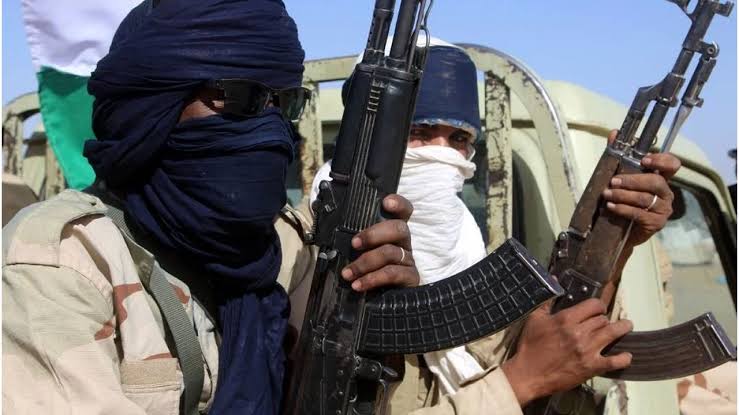Unveiling the Depths of Insecurity in Nigeria: A PulseNets Investigation
The Nigerian clutters bears a multitude of vibrant threads, yet its beauty is overshadowed by the persistent threads of insecurity. From the ominous proclamations of Boko Haram in the northeast to the audacious kidnappings afflicting the northwest, the spectre of insecurity looms large over the nation. This report, intricately woven with firsthand accounts and data collected by PulseNets, aims to spotlight the human toll exacted by this intricate issue.
Scope of the Problem:
The gravity of the situation becomes evident when examining the numbers. In 2023 alone, over 10,000 Nigerians lost their lives to violent attacks, as reported by the Armed Conflict Location & Event Data Project (ACLED). The epicenters of this violence may shift, but the pain endured by those affected remains constant.
Boko Haram’s insurgency maintains a firm grip on the northeast, displacing millions and leaving a trail of trauma. Aisha, a refugee from Borno state, shares her heartbreaking experience: “They took everything – my husband, my children, our home… fear is all I have left.”
In the northwest and north-central regions, banditry and kidnapping have become ominous realities. Schools are shuttered, farms lie fallow, and families live in perpetual fear. Musa, a farmer from Kaduna state, confides, “We haven’t slept soundly in months. Every rustle in the wind sounds like approaching bandits.”
Periodic outbreaks of ethnic clashes and farmer-herder conflicts, fueled by historical tensions and resource competition, further divide communities. Chief David, a leader in Benue state, laments, “We used to live together in peace. Now, suspicion and fear divide us.”
Even the digital realm is not immune. Cybercrime and online scams target the vulnerable, while misinformation and hate speech exacerbate real-world conflicts.
Eyewitness Accounts:
Behind the stark statistics lie the heart-wrenching stories of individuals caught in the crossfire.
Aisha’s testimony resonates with the plight of millions displaced by Boko Haram. Her longing for a return to normalcy seems distant amidst the ruins of her life.
Musa’s palpable fear mirrors the anxieties of countless communities living under the constant threat of banditry. His story underscores the disruption to livelihoods and the erosion of trust that insecurity brings.
Chief David’s lament reflects the tragic breakdown of social cohesion caused by ethnic clashes. His words serve as a stark reminder of the human cost of unresolved conflicts.
PulseNets: Weaving a Web of Information:
PulseNets, a citizen-driven information platform, plays a pivotal role in gathering and disseminating real-time updates on security incidents. Through its network of volunteers and community reporters, PulseNets provides invaluable data that informs interventions and responses.
For instance, early warnings about bandit movements shared by police and on PulseNets have assisted communities in preparing and potentially avoiding attacks. Similarly, reports of cybercrime scams have empowered individuals to protect themselves and others.
Impact on Vulnerable Populations:
The chaoses of insecurity is woven with threads of particular vulnerability. Women and children bear a disproportionate burden, facing risks of violence, exploitation, and displacement. Internally displaced persons (IDPs) endure precarious conditions, struggling to access basic necessities and rebuild their lives.
Hadiza, a young girl who fled Boko Haram with her family, details the challenges of accessing education and healthcare in an IDP camp. Her story highlights the long-term impact of insecurity on children’s development.
Fatima, a woman whose husband was kidnapped by bandits, speaks of the economic hardship and emotional trauma faced by families affected by such crimes. Her voice represents the plight of countless women who bear the brunt of insecurity.
Government Initiatives:
The Nigerian government has implemented various initiatives to address insecurity, including:
- Increased military presence: Deploying troops to conflict zones has yielded mixed results, with concerns about human rights abuses and the long-term sustainability of such measures.
- Social intervention programs: Initiatives aimed at addressing poverty, unemployment, and marginalization, seen as root causes of some forms of insecurity, have shown limited success due to challenges in implementation and corruption.
- Community policing: Efforts to involve communities in security measures are gaining traction, though challenges remain in building trust and ensuring equitable participation.
Community-Led Responses:
Communities are not passive bystanders. They have developed various self-defense mechanisms and peacebuilding initiatives:
- Vigilante groups: While controversial due to the potential for abuse, these groups sometimes provide a sense of security in areas with limited state presence.
- Early warning systems: Communities share information about suspicious activity through traditional communication channels and social media.
- Dialogue and reconciliation efforts: Local leaders and faith-based organizations work to bridge divides and foster understanding between communities in conflict.
Role of International Actors:
The international community provides support through:
- Military training and equipment: Raising concerns about the potential escalation of violence and neglecting root causes.
- Development aid: Addressing poverty and inequality, but often lacking coordination and long-term vision.
- Mediation and conflict resolution efforts: Facilitating dialogue between warring parties and supporting peacebuilding initiatives.
Also Read: Tinubu’s govt fixes new date to end insecurity in Nigeria
Technology and Innovation:
Technology offers promising tools:
- Drone surveillance: Gathering intelligence and monitoring remote areas, raising privacy concerns.
- Data analysis: Identifying patterns and predicting security threats, requiring ethical considerations and responsible use.
- Community communication platforms: Facilitating information sharing and collaboration between communities and security forces.
Promoting Peace and Reconciliation:
Sustainable solutions lie in addressing the root causes of insecurity:
- Inclusive governance: Ensuring equitable representation and addressing grievances of marginalized groups.
- Economic development: Creating opportunities for all, particularly in conflict-affected regions.
- Education and social change: Promoting tolerance, understanding, and conflict resolution skills.
- Justice and accountability: Holding perpetrators accountable and ensuring access to justice for all.
Conclusion:
The disarray of insecurity in Nigeria is complex and ever-shifting. It demands a multifaceted response that combines government action, community initiatives, international cooperation, and innovative solutions. By addressing the root causes, promoting peace and reconciliation, and ensuring inclusive development, Nigeria can begin to unravel the dark threads of insecurity and weave a brighter future for all its citizens.













